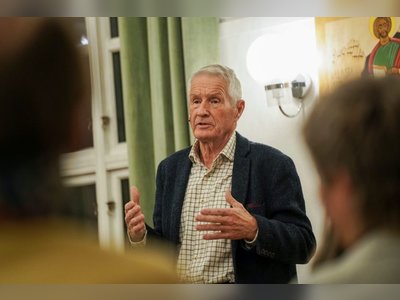Romania's Electoral Reckoning: Navigating Foreign Interference Allegations
The annulment of Romania's presidential election over Russian interference claims ignites debate on democracy's fragility amid geopolitical tensions.
In an unprecedented decision, Romania's constitutional court has annulled the recent presidential election, citing alleged Russian interference.
This dramatic development follows the release of declassified intelligence documents highlighting a substantial online influence operation and cyber-hacking activities reminiscent of past Russian operations.
The annulment not only marks a significant political upheaval for Romania but also sets a complex precedent in handling foreign interference claims.
The implications of the court's decision underscore a broader anxiety that haunts modern democracies.
While the evidence of external manipulation is compelling, the notion that any assertion of foreign interference can invalidate democratic processes raises troubling questions about electoral integrity.
This anxiety is particularly acute in Romania, where memories of Soviet domination resonate deeply, fueling a cultural and historical skepticism of Russian motives.
At the center of this electoral maelstrom is Calin Georgescu, whose campaign has been shadowed by controversy.
His dismissive response to the interference allegations, coupled with his policies aligning with Russian interests, such as reducing aid to Ukraine and questioning Romania's commitment to NATO, has only intensified scrutiny.
Yet, labeling Georgescu as a mere Russian pawn simplifies the complexities at play, and risks marginalizing legitimate political discourse.
The fundamental challenge lies in balancing the legitimacy of elections while ensuring fairness to all candidates.
The annulment raises a critical query: how can democracies safeguard electoral integrity against foreign influence without undermining their own processes?
This case might serve as a template or a warning for other nations confronting similar challenges.
As Romania braces for an election rerun, the real test will be in managing public sentiment.
Whether Georgescu's followers will accept the court's decision or rally behind his nationalist rhetoric remains uncertain.
Their response could herald a shift in Romania's political landscape, at a moment when international influence looms large over national sovereignty.
In reflecting on these unfolding events, the words of poet Maya Angelou offer timely wisdom: 'History, despite its wrenching pain, cannot be unlived, but if faced with courage, need not be lived again.' The future of Romania's democracy may well hinge on how courageously it navigates these turbulent waters, balancing the past's lessons with the demands of an interconnected world.
This dramatic development follows the release of declassified intelligence documents highlighting a substantial online influence operation and cyber-hacking activities reminiscent of past Russian operations.
The annulment not only marks a significant political upheaval for Romania but also sets a complex precedent in handling foreign interference claims.
The implications of the court's decision underscore a broader anxiety that haunts modern democracies.
While the evidence of external manipulation is compelling, the notion that any assertion of foreign interference can invalidate democratic processes raises troubling questions about electoral integrity.
This anxiety is particularly acute in Romania, where memories of Soviet domination resonate deeply, fueling a cultural and historical skepticism of Russian motives.
At the center of this electoral maelstrom is Calin Georgescu, whose campaign has been shadowed by controversy.
His dismissive response to the interference allegations, coupled with his policies aligning with Russian interests, such as reducing aid to Ukraine and questioning Romania's commitment to NATO, has only intensified scrutiny.
Yet, labeling Georgescu as a mere Russian pawn simplifies the complexities at play, and risks marginalizing legitimate political discourse.
The fundamental challenge lies in balancing the legitimacy of elections while ensuring fairness to all candidates.
The annulment raises a critical query: how can democracies safeguard electoral integrity against foreign influence without undermining their own processes?
This case might serve as a template or a warning for other nations confronting similar challenges.
As Romania braces for an election rerun, the real test will be in managing public sentiment.
Whether Georgescu's followers will accept the court's decision or rally behind his nationalist rhetoric remains uncertain.
Their response could herald a shift in Romania's political landscape, at a moment when international influence looms large over national sovereignty.
In reflecting on these unfolding events, the words of poet Maya Angelou offer timely wisdom: 'History, despite its wrenching pain, cannot be unlived, but if faced with courage, need not be lived again.' The future of Romania's democracy may well hinge on how courageously it navigates these turbulent waters, balancing the past's lessons with the demands of an interconnected world.










